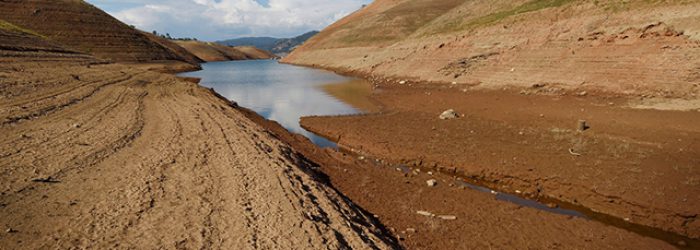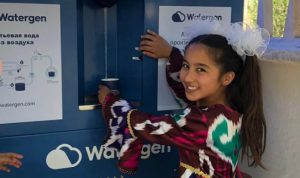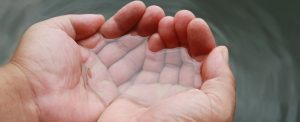Clean Water and Sanitation


SDG 6 - Water for the Masses - Local and Global Solutions
Israel has a chronic water problem – in an arid country with a desert topography, where rain falls only in winter, every drop of water is precious. Most of Israel’s rainwater comes in the months of October through March, but it is usually so torrential that the water is lost to runoff. The Sea of Galilee is approaching its lowest-ever level, so the North’s waterways are no longer a viable source of water for the country.


Never dismayed by environmental challenges, Israeli scientific ingenuity came up with solutions. Today Israel depends heavily on wastewater reclamation and seawater desalination to assure an adequate supply – 2.1 cubic meters annually – to Israeli households, industry and agriculture. Desalination alone – the process by which salt and other impurities are removed from seawater to produce potable water – meets about 60% to 80% of Israel’s domestic water demand. Reclaimed wastewater from just one plant in the greater Tel Aviv region supplies 140 million cubic meters of water to Israeli farms annually. One would be remiss not to also mention drip irrigation – Israel’s patented method for watering fields with “drips” of water, providing the smallest, and most targeted amount of water necessary. This method saves massive amounts of water that would have flooded fields and gone to waste. Watergen, Israel’s latest innovation, literally creates water out of air.
But Israel is still lacking 100 million to 200 million cubic meters of water per year. Further, desalination and wastewater reclamation have high rates of energy consumption, and desalination produces greenhouse gasses that have a negative effect on climate change. Israel therefore has arrived at a number of other creative solutions for the problem of water scarcity, both in Israel and globally: Reduction of meat consumption (the production of a kilogram of meat requires 15,000 liters of water); the extension of the shelf-life of vegetables through the prevention of water-loss; genome editing of crops to prepare them to cope with long periods of drought; training the root systems of plants to grow in directions that will bring them more water; making crop irrigation systems more efficient with sensors that will indicate where and when water is most needed. Last but certainly not least, conservation and awareness are critically important in assuring adequate and affordable water. Food and clothing production, urbanization, population growth, climate changes and increased standards of living all have a significant effect on the global water infrastructure.
Speaking globally, desalination is being used as a major solution to water shortage. This is where Israel’s expertise comes in. IDE Technologies has built water desalination plants in California, Chile, China and India. The Carlsbad plant in San Diego County, California, provides 54 million gallons of water a day for 300,000 Californians. In the Indian state of Gujarat, IDE’s desalination plant has been so successful that IDE recently started expansion works, a project that has been shortlisted for the “Industrial Desalination Plant of the Year” by Global Water Awards 2017.
And believe it or not, a shared desalination plant on the Dead Sea for Israelis, Jordanians and Palestinians is in the works as well. Using desalination – and soon, other water technologies – Israel is bringing water to water-scarce nations, and building bridges between them as well.
More keywords to explore: effects of clean water, water sdg, sdg water, clean and sanitation, sdg for water, clean sanitation, sdg clean water and sanitation, water and sanitation sdg, impact of water, cleans water, impact water, clean water and sanitation sdg, sdg 6 clean water and sanitation, clean water problem, sdg clean water, clean water, clean the water, clean water sanitation, clean water sdg, clean water and health, the water problem, clean water and sanitation, water clean, water problem, israel water, potable water is, sdg water and sanitation, 6 sdg, water and health, sdg sanitation, sdg 6, water and sanitation, israel water desalination, sdg 6 water, clean with water,


SDG 6 – Watergen: From Air to Water -By Dr. Eitan Eliram Lead Innovation Strategist July 2024
Clean Water and Sanitation “By 2025, 50% of the world’s population will be living in water-stressed areas,” says the World Health Organization. Confronting these issues


SDG 6- Israel – Saving Water, and the World
Clean Water and Sanitation SDG 6 -Israel – Saving Water, and the World If necessity is the mother of invention, then Israel’s water challenges are


















